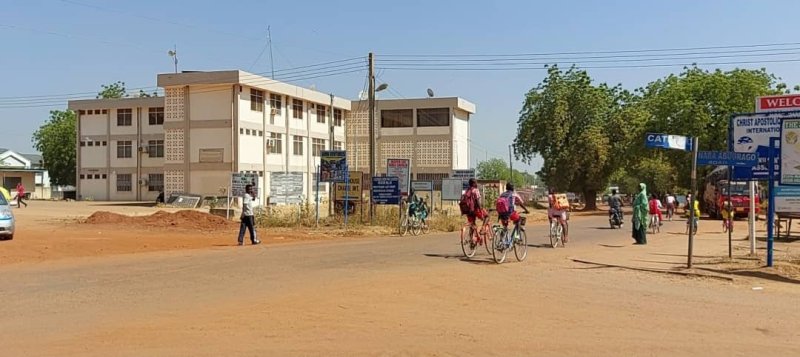

 Poor diets are responsible for about 20 per cent of premature deaths in Ghana.
Poor diets are responsible for about 20 per cent of premature deaths in Ghana.
Poor nutrition has become a leading cause of disease and death globally, particularly in low-income countries, with Ghana facing growing challenges in food quality and access.
Professor Anna Lartey, former Director of Nutrition at the Food and Agriculture Organisation (FAO) of the United Nations in Rome, made this known in a keynote address at the launch of the UG Nkabom Seminar Series, Honours Programme, and Mentorship/Internship Programme in Accra.
“In Ghana, we are not eating well, and our diet has now become a source of disease and death for us,” she said.
The event was held under the theme “Empowering Youth for a Sustainable Agri-Food Revolution in Ghana and Beyond.”
The Nkabom Collaborative is a strategic initiative aimed at transforming Ghana’s agri-food system by empowering youth to take up opportunities in the food and nutrition value chain.
It is a partnership involving the Mastercard Foundation, McGill University, University of Ghana, Kwame Nkrumah University of Science and Technology, Koforidua Technical University, Ashesi University, University of Health and Allied Sciences, University of Environment and Sustainable Development, and the Ghana Association of Industries.
Globally, about 3.1 billion people cannot afford a healthy diet.
In Africa, the figure is nearly one billion, while in Ghana, about 65 per cent of the adult population cannot afford a nutritious diet.
Prof Lartey said the FAO recommends consuming five servings of fruits and vegetables daily.
“If every Ghanaian is going to eat five fruits and vegetables a day, our production will not match our consumption.
“We produce too few fruits and vegetables. But it’s not surprising that our food is highly carbohydrate,” she noted.
Prof. Lartey explained that food systems include production, processing, retail, consumption, and disposal, and emphasised the importance of a clean food environment to support a healthy lifestyle.
“So if you live in an area where the foods around you are highly processed foods and junk foods, it is most likely to influence the kinds of foods you will choose,” she said.
Prof. Lartey observed that Ghana’s food systems do not produce enough of the right foods.
“If you take your plate and put food on your plate, about half of it should be fruits and vegetables,” she advised.
She called for coordinated national efforts to address food system challenges and promote food security.
Prof Richmond Aryeetey, UG Nkabom Collaborative Lead, said the initiative was designed to equip youth to become the next generation of tech-enabled farmers, agrifood product developers, manufacturers, and agritechpreneurs.
“We work on three programme lines – education programmes in agrifood systems to develop human resources to drive change in Ghana’s food systems.
“These include a PhD programme in sustainable food systems as well as lifelong learning opportunities through tailored short courses that have been co-created with agrifood industry partners,” he said.
Prof. Aryeetey added that the programme also seeks to expand access to nutrition and agrifood systems for young women, persons with disabilities, and internally displaced persons.
The third component is entrepreneurship, aimed at supporting youth farmers and food system innovators with mentorship, business incubation, market access, and seed funding.
Mr Piere Brunache, Secretariat Director of the Nkabom Collaborative, said the programme aims to create 55,000 jobs and establish 3,000 Small and Medium Enterprises in the next 10 years.
He urged the youth to seize the opportunity to build skills for employment and contribute to national development.
Source: GNA
The post Poor diets cause 20% of premature deaths – Prof Lartey appeared first on Ghana Business News.
Read Full Story
























Facebook
Twitter
Pinterest
Instagram
Google+
YouTube
LinkedIn
RSS